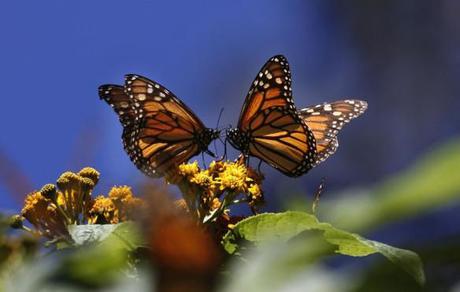 When the White House signed an order on pollinator health last week, it included all pollinators — not just honeybees.
When the White House signed an order on pollinator health last week, it included all pollinators — not just honeybees.
“Obama announces plan to save honeybees,” CNN proclaimed. “White House creates new honeybee task force,” the Wire echoed. “White House task force charged with saving bees from mysterious decline,” the Guardian added, referencing the colony collapse disorder that contributed to the death of 23 percent of managed honeybees last winter.
“But those headlines overlooked the most important part of the presidential order: it encompassed all pollinators, including birds, bats, native bees, and butterflies — not just honeybees. The memorandum will spur the creation, within the next 180 days, of a National Pollinator Health Strategy that will lay out ways for the U.S. to better study and better tackle the problems facing pollinators, both wild and managed. While the plight of bees has gotten deserved attention of late, many species of pollinators face the same threats: habitat destruction, climate-induced changes in flowering and weather patterns, and in some cases, pesticides.”
Source: thinkprogress.org
GR: Dropping pesticides and interspersing food plants with crops will help pollinators, but there are other things to consider. Construction, farming, logging, livestock grazing, invasive species, and toxic pollutants (including greenhouse gasses) are eliminating habitat much faster than farmers are recovering it. Until humans control their population and correct the ways they use resources, pollinators and other species will continue to decline.

